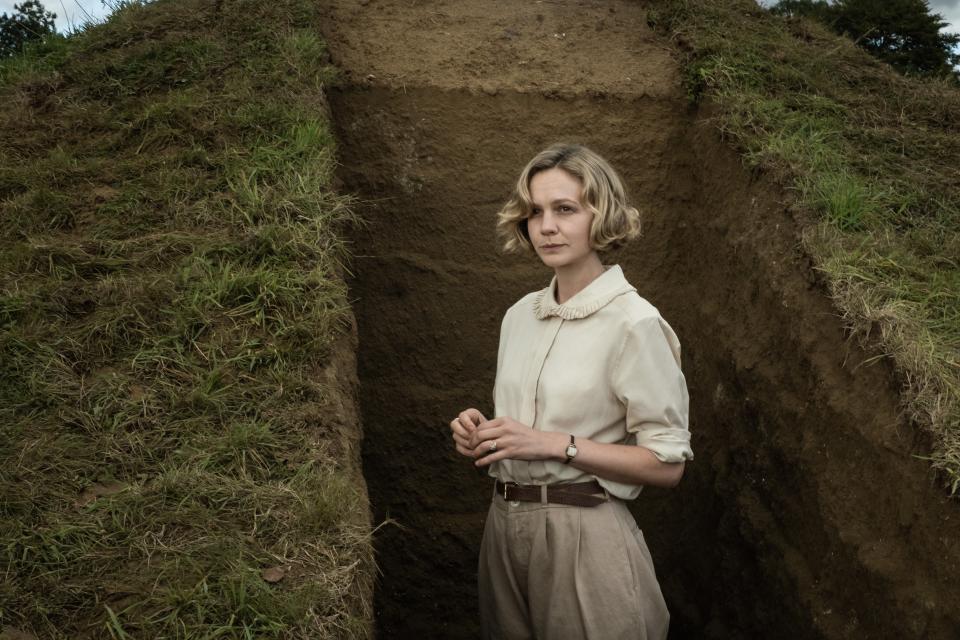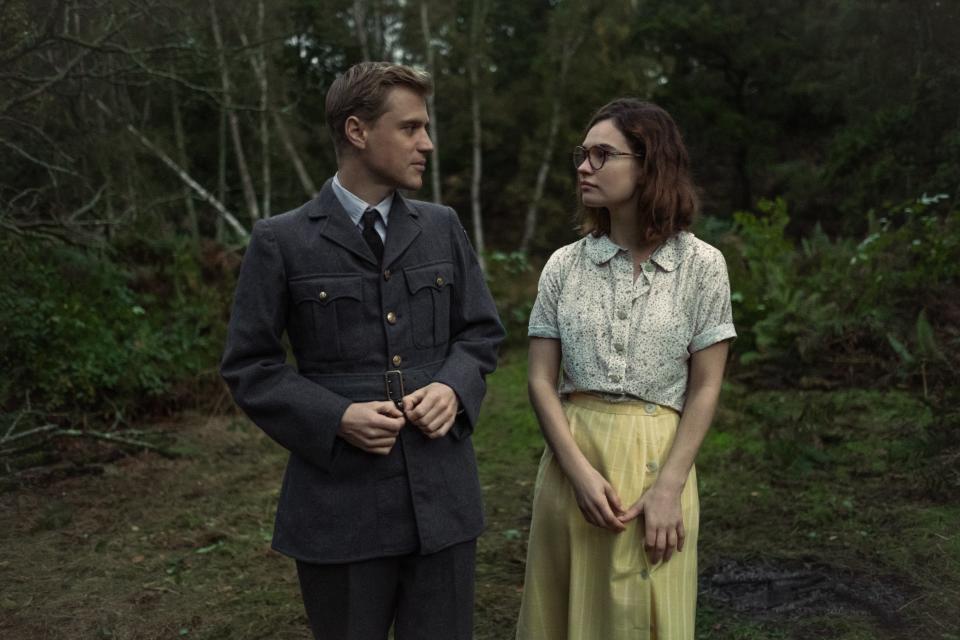The Dig review: Netflix archaeological drama quietly subverts its period dressings

Dir: Simon Stone. Featuring: Carey Mulligan, Ralph Fiennes, Lily James, Johnny Flynn, Ben Chaplin, Ken Stott. 12, 112 mins
Death seeps into every frame of The Dig, Netflix’s beguiling new period drama. It lies deep in the soft mud of Suffolk’s Sutton Hoo, within the bones of a centuries-old ceremonial ship invisible to history. It sleeps inside the chest of Edith Pretty (Carey Mulligan), who owns the land on which these undiscovered treasures sit, her damaged heart weakening a little more with each passing day. And it arrives by air, as RAF planes from a nearby base ready themselves for war.
The film, directed by Australia’s Simon Stone, arrives in delicate lace and stiff tweeds. Set in 1938, it tells the true story behind the excavation of the Sutton Hoo burial site. Self-taught archaeologist Basil Brown (Ralph Fiennes) is hired by Pretty to investigate a cluster of earth mounds on her property. Local rumours suggest the presence of Roman graves – or a Viking hoard, perhaps. Brown believes it to be an Anglo-Saxon construction, which would make it one of the most significant discoveries in British archaeological history, by offering profound insight into the so-called Dark Ages.
When Brown’s not only proven right but finds evidence that the Anglo-Saxons were a rich and culturally advanced society, the British Museum gets involved. Its Oxbridge clique of professionals, led by Charles Phillips (Ken Stott), is eager to brush aside Brown’s work, because he is not one of its breed. But audiences know that with a dash of old-fashioned, British doggedness – and the kind eye of an aristocratic patron like Pretty – Brown will eventually overcome.
And yet The Dig quietly subverts the comforts of victory, exposing them as a fleeting and superficial state of being. Nothing will free these souls from the inevitability of history. Achievements fade and entire lives are reduced to, as one character notes, fragments of broken china or a rusted watch wheel. There is a contemplative quality to Stone’s film, which cinematographer Mike Eley matches in dreamy, handheld camerawork that hovers around and follows characters lost in thought.

Moira Buffini’s script work, including her 2011 adaptation of Jane Eyre, lends a modern eye to the classic English sensibility – here, she grounds each relationship in the feeling of an unspoken future tragedy. No one can quite shake the grip of an oncoming war. What passes between Pretty and Brown is chaste, but intimate. A simple moment of companionship will do for two people facing such uncertainty. Peggy Preston (Lily James) is a young archaeologist hired because her light step won’t damage the ship’s hull. She’s humiliated by her peers and ignored by her husband (Ben Chaplin), but soon finds herself drawn to Pretty’s knavish cousin Rory (Johnny Flynn) – a man who will no doubt be called up to fight when the worst comes to pass. Buffini has adapted a novel by journalist John Preston, nephew to the real-life Peggy (she later remarried and went by the name Margaret Guido).
The cast all capture that necessary sense of fragility, as if they could all be snuffed out in an instant. At times, editor Jon Harris allows a scene’s dialogue to continue offscreen, as the camera turns to focus on Mulligan’s Pretty in a moment of private despair, sat stiff as an effigy. It’s a delicately handled performance, one that never tries to beg its audience for sympathy and praise. The same could be said of Fiennes’s approach. Brown’s attitude is confident, stubbornly self-assured – but the actor fills his eyes with doubt. The Dig may play like a requiem, but it still finds promise in all this crippling mortality. As Brown says: “From the first human handprint on a cave wall, we’re part of something continuous. So we don’t really die.”
Read More
Why British filmmakers are so transfixed by sexual repression

 Yahoo Movies
Yahoo Movies 